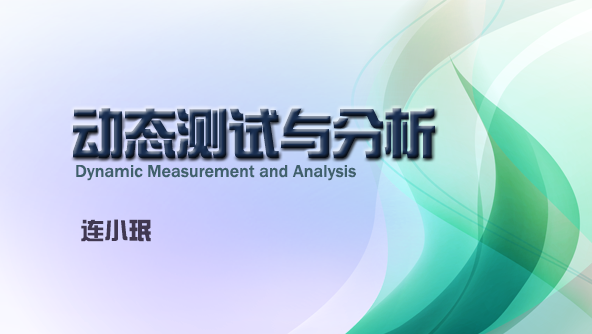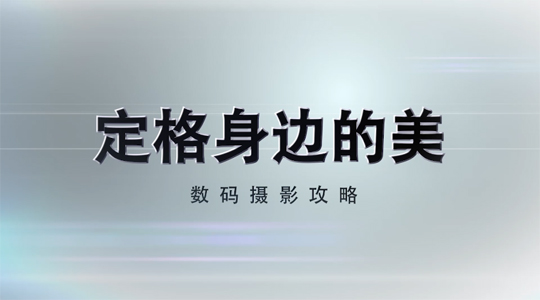
当前课程知识点:“一带一路”沿线国家跨文化商务交际 > 第一章 泰国 > 1.3 泰国商务礼仪 > 1.3 泰国商务礼仪
返回《“一带一路”沿线国家跨文化商务交际》慕课在线视频课程列表
Hello everyone
Welcome to the Intercultural Business Tour in Thailand
Now let’s move on to the fun part
The intercultural business etiquette
In this part we are going to talk about
the following etiquette that you should pay strong attention to
while communicating with Thai business men and women
they are
Greeting manners
Business cards
Names and titles
Emphasis on patience
Time management
Dress code
Gift giving
And Dining manners
First we all know that the Greeting Manners in Thailand
is very special
A common greeting traditionally used
is wai(泰式见面礼读作 [wâi])
which means to put your hands together
fingertips up and head down
When you meet your Thai business contact
you are not expected to pledge a wai
but it would be an insult not to return the wai
What’s more wai gestures are offered to a person
of equal or greater status in business organisations
Those who are younger and of lesser status
are to give wai to those who are older
or with high seniority(年长 资历) first
The higher the hand is placed the more respectful it is
The word sawadee(泰语 你好 再会读作[sàwàtdiː])means hello
which you may hear quite often said by Thais
and occasionally it also means goodbye
Women will use kah(女士用泰式敬语读音接近[ka:])
and men will use krap(男士用泰式敬语,读音接近[ka])
So when being introduced to your Thai business partners
you say sawadee kah if you are female
or sawadee krap if you are male
Learning how to greet Thai people
as the locals do will create a positive first impression
which plays a crucial role
in business greetings and introductions
Business cards
Now let’s talk a little bit about business cards
In Thailand business cards are also a sacred part
of its business etiquette(礼节)
As in many Asian countries
a lot of importance is placed on business cards
A high-quality business card is an important asset(有利条件)
in Thailand and should be exchanged
when initiated by the host
When you receive a business card
it is important to read
and then place it carefully in your wallet
Likewise your own business card should be offered
to the most senior person in a meeting
before anyone else and it is imperative that cards be given
and received with the right hand
This card-exchanging process also states your position
within your company
so that your Thai business counterparts(对等职位之人)
understand your place
within the company hierarchy(等级制度)
Another thing we need to pay attention to is names
and titles used in Thai business scenarios
In Thai business names are generally used
with the honorific(敬语的)
Khun(泰式敬称通常放在名字前读音接近[kʌn])
before the name
for both men and women
Just as the same case in most English speaking countries in Thailand
first name refers to one’s given name
while last name refers to one’s family name
It’s important to note that Thais tend to use first names
rather than last names even when using Mr and Miss
so you can expect to be addressed(称谓)
by your first name even in business situations
Nicknames are common in Thailand
If you are close acquaintances and friends
with your Thai business partners
you can use their nicknames instead
of first names to show familiarity(亲切熟悉)
This is because nicknames are a big part
of Thai culture and almost everyone will have one
So feel free to call your Thai business partners
by their nicknames once you
become more comfortable with them
However you should avoid being too familiar
in business meetings or with people who are much higher
in the company hierarchy than you
Okay now I want to call your attention
to the important rule of doing business with Thais
Patience
Thais are generally not very decisive decision makers
and often need to consult several people
before making a decision
Therefore
it is unlikely that any decisions will be made
on a first meeting
and will probably require several business meetings
This can be a slow and somewhat painful
process especially for foreigners
but it is inevitable
Thus patience has become an essential quality
when it comes to conduct business negotiations
with Thais and impatience should be avoided in business settings
since it will also be seen as a sign of weakness
The next thing to notice is time management
Punctuality (守时) is appreciated and as foreigner business contacts
you are expected to arrive on time
to meetings and social gatherings
Therefore
it is advisable to check the traffic situation
in large cities especially in Bangkok
as regular traffic jams and roadworks can cause severe delays
While you are expected to arrive on time
meetings may not always start on time
Furthermore meetings are rarely timed and tend to run overtime
as the whole meeting procedure will be strictly completed
regardless of less or more content
and is considered a rather important part of meetings
In formal situations
it is better to arrive a few minutes earlier
for a meeting rather than just on time
If you are just on time
or even a minute or two late for a meeting
it may be viewed as extremely unprofessional
Next
what to wear and how to wear
is also very important in Thai business occasions
Although the business outfit is not strictly formal
it is important to wear suitable attire (服装)
when invited to formal business meetings in Thailand
because that will allow you to be taken seriously
by your Thai business partners
As for businessmen
conservative coloured suits with shirt and tie are appropriate
Jackets would be a nice addition
especially for meetings with senior partners
As for business women
long trousers or a skirt that is long enough
to cover the knees and a blouse or shirt are appropriate
Tight fitting and sleeveless(无袖的)
clothes should be avoided
Shoes need to be taken off in some offices and most homes
therefore it is a good idea to wear shoes
that are easy to slip on and off
Smart casual(时尚休闲装) is acceptable
for business entertaining events
Gift giving is very crucial while doing business with Thais
Giving gifts to your business partners
is highly encouraged in Thailand
but there are certain rules to follow
It is important to both give and receive gifts
with your right hand
As for proper gifts bringing something small
from your own country such as food or alcohol
is a good idea
It is considered rude to open a gift in the presence
of the gift giver
so you must wait until you are back
in your hotel before you open it
Thai people love their food and enjoy hospitality
so if you are invited to a business talk in a restaurant
make sure you accept the invitation
However there are certain rules that you must follow
It is important to wait to be seated by your host
as the most senior person usually sits at the head of the table
Shoes must be removed
when you are invited to enter a home or restaurant
Most kinds of Thai food are eaten with a fork
and a tablespoon(汤匙)rather than with chopsticks(筷子)
The spoon is held in the right hand
and the bottom of the fork pushes the food into the spoon
Only some exclusive food is eaten
with your fingers and make sure you use your right hand
Unless you are extremely hungry
otherwise don’t clear your plate
since a clear plate is a sign
that you are still hungry and it will be refilled
Pay close attention to dining etiquette
will earn your Thai business partners a good impression
See you next time bye bye
-课程导语
-1.1 泰国的社会文化背景概况
-1. 2 泰国的核心文化价值观
-1.3 泰国商务礼仪
-1.4 泰国商务实践
-1.5 泰国商务中的跨文化交际陷阱
-1.6 Discussion
-1.7 Unit test
--1.7 Unit Test
-2.1 新加坡社会文化背景概况
-2.2 新加坡核心文化价值观
-2.3 新加坡商务礼仪
-2.4 新加坡商务实践
-2.5 新加坡商务中的跨文化交际陷阱
-2.6 Discussion
-2.7 Unit test
--2.7 Unit test
-3.1 马来西亚社会文化背景概况
-3.2 马来西亚核心文化价值观
-3.3 马来西亚商务礼仪
-3.4 马来西亚商务实践
-3.5 马来西亚商务语境中的跨文化交际陷阱
-3.6 Discussion
-3.7 Unit test
--3.7 Unit test
-4.1 哈萨克斯坦社会文化背景概况
-4.2 哈萨克斯坦核心文化价值观
-4.3 哈萨克斯坦商务礼仪
-4.4 哈萨克斯坦商务实践
-4.5 哈萨克斯坦商务语境中的跨文化交际陷阱
-4.6 Discussion
-4.7 Unit test
--4.7 Unit test
-5.1 沙特阿拉伯的社会文化背景概况
-5.2 沙特阿拉伯的核心文化价值观
-5.3 沙特阿拉伯商务礼仪
-5.4 沙特阿拉伯商务实践
-5.5 沙特阿拉伯商务语境中的跨文化交际陷阱
-5.6 Discussion
-5.7 Unit test
--5.7 Unit test
-6.1阿联酋的社会文化背景概况
-6.2阿联酋的核心文化价值观
-6.3阿联酋商务礼仪
-6.4阿联酋商务实践
-6.5阿联酋商务中的跨文化交际陷阱
-6.6 Discussion
-6.7 Unit test
--6.7 unit test
-7.1 印度的社会文化背景概况
-7.2 印度的核心文化价值观
-7.3 印度商务礼仪
-7.4 印度商务实践
-7.5 印度商务语境中的跨文化交际陷阱
-7.6 Discussion
-7.7 Unit test
--7.7 Unit test
-8.1 俄罗斯社会文化背景概况
-8.2 俄罗斯核心文化价值观
-8.3 俄罗斯商务礼仪
-8.4 俄罗斯商务实践
-8.5 俄罗斯商务中的跨文化交际陷阱
-8.6 Discussion
-8.7 Unit test
--8.7 Unit test
-9.1 波兰社会文化背景概况
-9.2 波兰核心文化价值观
-9.3 波兰商务礼仪
-9.4 波兰商务实践
-9.5 波兰商务中的跨文化交际陷阱
-9.6 Discussion
-9.7 Unit test
--9.7 Unit test
-10.1南非的社会文化背景概况
-10.2南非的核心文化价值观
-10.3南非商务礼仪
-10.4南非商务实践
-10.5南非商务中的跨文化交际陷阱
-10.6 Discussion
-10.7 Unit test
--10.7 Unit test
-期末考试




